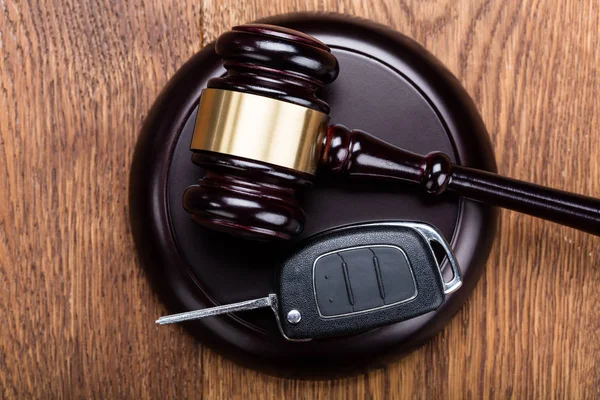Navigating The California Lemon Law: Steps To Take If You Have A Defective Vehicle
The California Lemon Law, officially known as the Song-Beverly Consumer Warranty Act, is designed to protect consumers who purchase or lease defective vehicles. This law provides a legal remedy for those who find themselves burdened with a car that has persistent issues despite multiple repair attempts. If your vehicle qualifies as a "lemon" under this law, you may be entitled to a refund, replacement, or compensation for the defective vehicle. Understanding the nuances of Lemon Law in California is crucial for consumers seeking redress for defective vehicles.
Key Aspects of the California Lemon Law
The law applies to both new and used vehicles that are sold or leased with a warranty. It covers cars, trucks, motorcycles, and even certain recreational vehicles. However, to qualify as a lemon, the vehicle must have a significant defect that affects its use, value, or safety. Additionally, the manufacturer or dealer must have been given a reasonable number of attempts to fix the problem.
What Qualifies as a Lemon?
Not every vehicle problem qualifies under the Lemon Law. To be considered a lemon, the defect must be substantial and not the result of misuse by the owner. The vehicle must also still be under warranty when the defect is first reported. Typically, if the same issue has not been resolved after four or more repair attempts, or if the vehicle has been out of service for more than 30 days due to repairs, it may be considered a lemon.
Steps to Take if You Have a Defective Vehicle

Document the Issues
The first step in navigating the California Lemon Law is to meticulously document all issues with your vehicle. Keep detailed records of every visit to the dealership or repair shop, including dates, descriptions of the problems, and the work performed. This documentation is crucial as it serves as evidence of the defect and the efforts made to repair it.
Contact the Manufacturer or Dealer
Once you realize that your vehicle may qualify as a lemon, you should notify the manufacturer or dealer in writing. Clearly state the problems with the vehicle, the attempts made to repair it, and your intention to pursue a claim under the Lemon Law. This step is essential because it gives the manufacturer a final opportunity to resolve the issue before legal action is taken.
Request a Refund or Replacement
If the manufacturer or dealer is unable to fix the defect after a reasonable number of attempts, you can formally request a refund or replacement of the vehicle. Under the California Lemon Law, you are entitled to a refund of the purchase price, minus a deduction for the mileage driven before the first repair attempt. Alternatively, you may choose to receive a replacement vehicle of the same make and model.
Consult an Attorney
Navigating the legal aspects of the California Lemon Law can be complex. It is advisable to consult an attorney who specializes in Lemon Law cases to guide you through the process. An experienced attorney can help you understand your rights, negotiate with the manufacturer, and represent you in court if necessary. Most Lemon Law attorneys work on a contingency basis, meaning they only get paid if you win your case.

The Legal Process: What to Expect
Filing a Claim
If the manufacturer refuses to comply with your request for a refund or replacement, you may need to file a claim in court. Your attorney will assist in preparing the necessary legal documents and will file the claim on your behalf. The court will then set a date for your case to be heard.
Arbitration vs. Court
Before going to court, some manufacturers may offer arbitration as a means to resolve the dispute. Arbitration is a less formal process where a neutral third party reviews the case and makes a binding decision. While arbitration can be quicker and less expensive than going to court, it is important to weigh the potential outcomes with your attorney before agreeing to this option.
Possible Outcomes
If your case goes to court, the judge or jury will decide whether your vehicle qualifies as a lemon under California law. If you win, the court may order the manufacturer to provide a refund, a replacement vehicle, or other compensation. In some cases, you may also be awarded additional damages if the manufacturer acted in bad faith.
Common Myths and Misconceptions About the California Lemon Law
Myth 1: The Lemon Law Only Applies to New Vehicles
One common misconception is that the California Lemon Law only applies to new vehicles. In reality, the law covers both new and used vehicles as long as they are sold or leased with a warranty. This means that even if you purchased a used car, you may still have protection under the Lemon Law if the vehicle has significant defects that the dealer or manufacturer fails to fix.
Myth 2: Minor Issues Qualify a Vehicle as a Lemon
Another myth is that any minor issue with a vehicle can qualify it as a lemon. However, the law specifically requires that the defect be substantial and impact the vehicle's safety, value, or usability. Cosmetic issues, minor inconveniences, or problems that do not affect the overall function of the vehicle typically do not meet the criteria for the Lemon Law.
Benefits of Hiring a Lemon Law Attorney
- Expert Legal Guidance: An attorney specializing in Lemon Law can provide you with expert advice and ensure that you follow the correct legal procedures.
- Stronger Negotiation Power: Attorneys have the experience and knowledge to negotiate effectively with manufacturers and dealers on your behalf.
- No Upfront Costs: Many Lemon Law attorneys work on a contingency fee basis, meaning you only pay if you win your case.
- Maximizing Compensation: An attorney can help you understand the full range of compensation options available, including potential additional damages for bad faith actions by the manufacturer.

